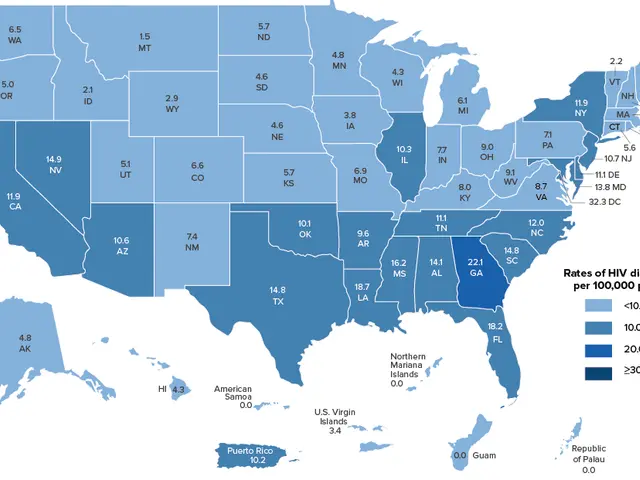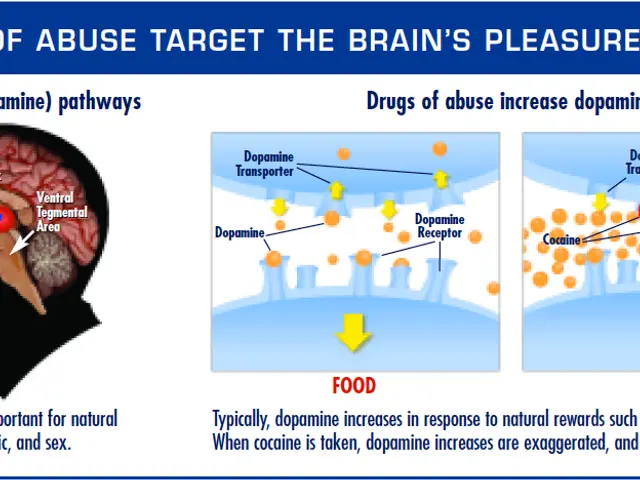Rise in Cardiac Arrests in Younger UAE Population Concerning for Medical Professionals
The United Arab Emirates (UAE) is currently experiencing a concerning trend of premature cardiac arrests among its younger population, particularly those under the age of 45[1]. This alarming rise is attributed to a combination of lifestyle, metabolic, and genetic factors.
According to a retrospective audit by Cleveland Clinic Abu Dhabi, nearly 50% of patients presenting with major heart attacks were under the age of 50, and around 10% were under 40[1]. Similar concerns have been expressed by cardiology specialists like Dr Sinan Ibrahim and Dr Hesham Tayel, who have noted an increasing number of younger individuals in the UAE developing metabolic syndromes[2][4].
### Causes
The increasing prevalence of obesity, hypertension, diabetes (especially type 2), and dyslipidemia among young adults significantly contributes to cardiovascular risk[1][2]. Sedentary lifestyles, poor diet, smoking, vaping, and recreational drug use are major contributors to early cardiac events. These habits contribute to arrhythmias, metabolic dysfunctions, and heighten the risk of sudden cardiac arrest[1].
Early-onset or hidden hypertension and hyperlipidemia often go undiagnosed in younger populations, increasing risk[1]. Additionally, genetic and structural heart diseases such as arrhythmogenic cardiomyopathies, hypertrophic cardiomyopathy, channelopathies, and coronary artery anomalies can cause fatal silent cardiac events even in otherwise fit young individuals[1].
Environmental stressors, such as extreme heat during UAE summers, can exacerbate cardiovascular stress, potentially triggering cardiac incidents in vulnerable individuals[3].
### Prevention Measures
Early detection and consistent health monitoring are key in preventing cardiac events. Regular cardiovascular risk assessment for younger individuals is critical, including monitoring for metabolic syndrome components and early hypertension[1][2].
Lifestyle modification, such as encouraging physical activity, balanced diet, and cessation of smoking and vaping, can significantly reduce cardiac risks[1]. Raising awareness among young adults about the dangers of substance use (including vaping and recreational drugs) and sedentary lifestyles is essential[1][4].
Proactive treatment of hypertension, diabetes, and dyslipidemia, along with genetic counseling for those with a family history of premature coronary artery disease, can help prevent acute events[2]. During the UAE’s extreme summers, vulnerable people should be advised to stay hydrated, avoid peak heat hours, and use cooling methods to prevent heat-induced cardiac stress[3].
In summary, the premature cardiac arrest rise in younger UAE populations is driven by a convergence of metabolic disorders, unhealthy lifestyles, genetic predispositions, and environmental factors. Combating this trend requires combined efforts in early detection, lifestyle changes, medical intervention, and public health education[1][2][3][4].
- The alarming rise in premature cardiac arrests among the younger population in the United Arab Emirates (UAE) has raised concerns, particularly for those under 45 years old.
- A retrospective audit by Cleveland Clinic Abu Dhabi revealed that nearly half of the patients presenting with major heart attacks were under the age of 50, with around 10% being under 40.
- Cardiology specialists like Dr Sinan Ibrahim and Dr Hesham Tayel have expressed increasing concerns about young individuals in the UAE developing metabolic syndromes.
- The increasing prevalence of obesity, hypertension, diabetes (especially type 2), and dyslipidemia among young adults significantly contributes to cardiovascular risk.
- Sedentary lifestyles, poor diet, smoking, vaping, and recreational drug use are major contributors to early cardiac events.
- Early-onset or hidden hypertension and hyperlipidemia often go undiagnosed in younger populations, increasing risk.
- Genetic and structural heart diseases such as arrhythmogenic cardiomyopathies, hypertrophic cardiomyopathy, channelopathies, and coronary artery anomalies can cause fatal silent cardiac events even in otherwise fit young individuals.
- Environmental stressors, such as extreme heat during UAE summers, can exacerbate cardiovascular stress, potentially triggering cardiac incidents in vulnerable individuals.
- Prevention measures include early detection and regular health monitoring, lifestyle modification, proactive treatment of hypertension, diabetes, and dyslipidemia, genetic counseling, raising awareness about substance use, staying hydrated during extreme summers, and avoiding peak heat hours.







